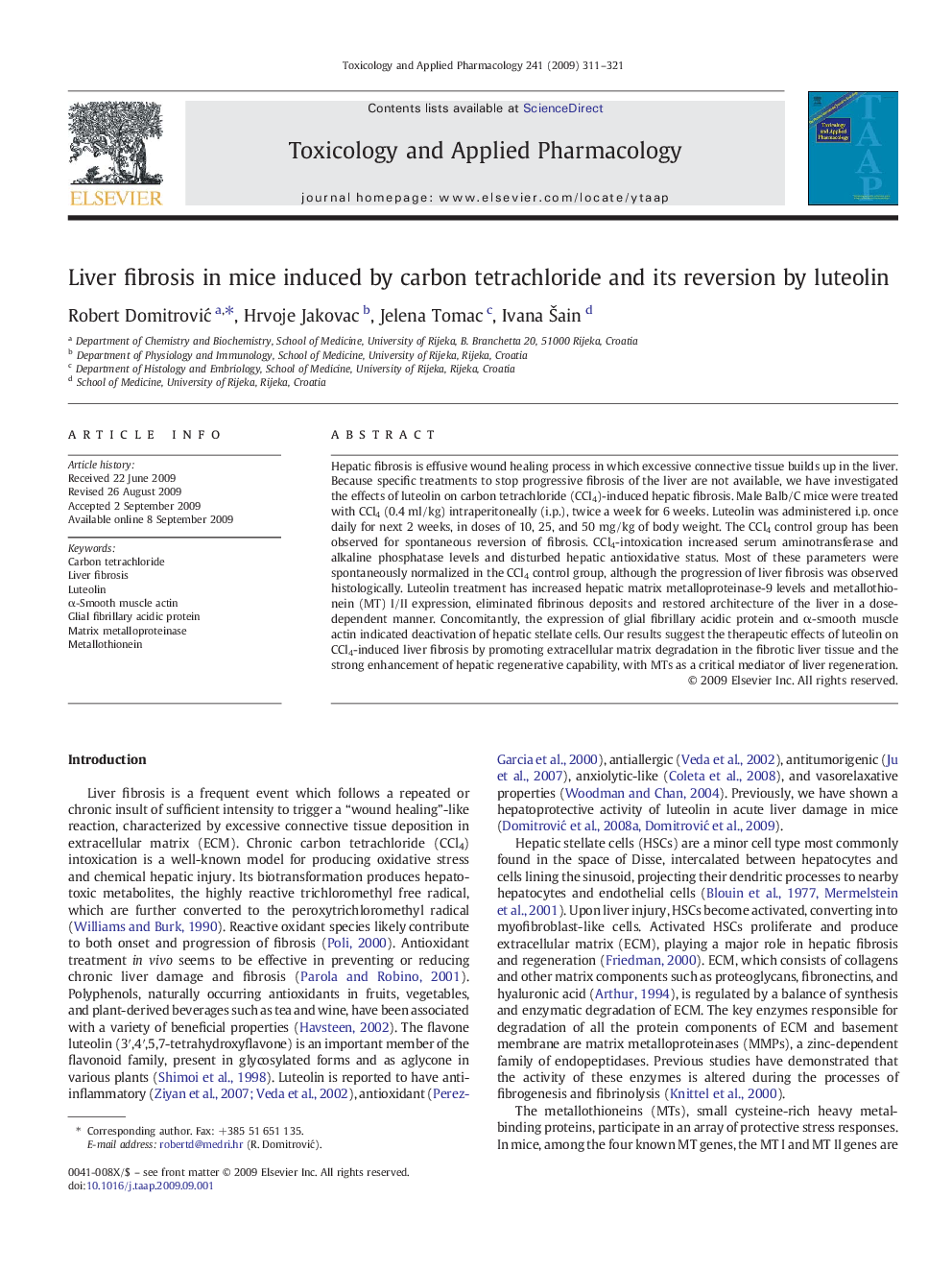| Article ID | Journal | Published Year | Pages | File Type |
|---|---|---|---|---|
| 2570727 | Toxicology and Applied Pharmacology | 2009 | 11 Pages |
Hepatic fibrosis is effusive wound healing process in which excessive connective tissue builds up in the liver. Because specific treatments to stop progressive fibrosis of the liver are not available, we have investigated the effects of luteolin on carbon tetrachloride (CCl4)-induced hepatic fibrosis. Male Balb/C mice were treated with CCl4 (0.4 ml/kg) intraperitoneally (i.p.), twice a week for 6 weeks. Luteolin was administered i.p. once daily for next 2 weeks, in doses of 10, 25, and 50 mg/kg of body weight. The CCl4 control group has been observed for spontaneous reversion of fibrosis. CCl4-intoxication increased serum aminotransferase and alkaline phosphatase levels and disturbed hepatic antioxidative status. Most of these parameters were spontaneously normalized in the CCl4 control group, although the progression of liver fibrosis was observed histologically. Luteolin treatment has increased hepatic matrix metalloproteinase-9 levels and metallothionein (MT) I/II expression, eliminated fibrinous deposits and restored architecture of the liver in a dose-dependent manner. Concomitantly, the expression of glial fibrillary acidic protein and α-smooth muscle actin indicated deactivation of hepatic stellate cells. Our results suggest the therapeutic effects of luteolin on CCl4-induced liver fibrosis by promoting extracellular matrix degradation in the fibrotic liver tissue and the strong enhancement of hepatic regenerative capability, with MTs as a critical mediator of liver regeneration.
